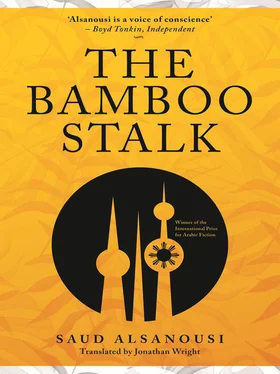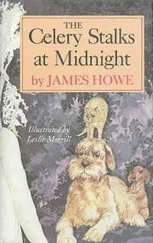I had a strange, vague impression of Islam. For me it was associated with certain symbols, like any religion or civilisation or idea. If the symbol worked well, it left a good impression of the thing it symbolised. If the symbol was a failure, it sent the wrong message.
When I was young, I looked on Islam with some bewilderment, mixed with respect when I found out how highly people regarded Lapu-Lapu, the famous sultan of Mactan, seen by Filipinos as one of their most important national heroes because he resisted colonialism in the sixteenth century. There are giant statues and other memorials to him in main squares across the country, portraying him with long hair, bare-chested, with his hands resting on the hilt of a sword planted in the ground. I remembered everything about this Muslim sultan. My classmates at school skipped this lesson and jumped on to the next lessons, but I read on until I reached the description of what happened on the morning of 27 April 1521, when Lapu-Lapu came out at the head of 1,500 warriors armed with barong knives, lances, kampilan swords and kalasag shields, in the famous battle of Mactan against Portuguese invader and explorer Ferdinand Magellan, who organised the first expedition to sail around the world. Magellan had sailed to Mactan in command of a force of more than 500 troops armed with muskets, on a mission to convert the sultan of the island to Christianity after successfully converting the ruler of a nearby island. Lapu-Lapu refused to meet Magellan’s demands and sprang to the defence of the island. They managed to kill Magellan with a poisoned arrow at the end of the battle.
Lapu-Lapu was the only Muslim icon I knew. I saw him and his men as mythical heroes and I thought my Muslim father was a distant descendant of his lineage. Because of him I had a positive image of Islam. But later this image was severely challenged by another Muslim icon that undermined my earlier impressions. That was the Abu Sayyaf group, which financed its activities by robbery, assassinations and blackmailing companies and rich businessmen. I had heard plenty about them when I was in the Philippines but I didn’t pay them much attention because I was young and I wasn’t interested in details of their movement at the time. Then they carried out their famous kidnapping in the middle of 2001. Everyone in the Philippines followed the news of the hostages, among them three Americans — two men and the wife of one of them. The news was horrifying. Twelve Filipino hostages were killed and the body of one of the American men was found with his head cut off. The hostages were held for more than a year before the army made an attempt to rescue them and the other American man and a Filipino nurse were killed. The Muslims in Mindanao are no doubt kind and peace-loving, like poor people everywhere, but people abroad only know them through the Abu Sayyaf group.
The heroism and life story of Sultan Lapu-Lapu, and the way ordinary people in the Philippines, regardless of religion, admired him and recognised his role in resisting invasion, were positive images that made me feel close to Islam. But the Abu Sayyaf group, by killing missionaries and other innocent people, very much alienated me from Islam.
* * *
The call to prayer was over and quiet returned. I was still in the car outside keeping an eye on Grandmother’s house. The curtain on one of the upstairs windows moved. I caught sight of a young woman looking down at me. She disappeared behind the curtain a few seconds later. I looked down to the front door, where Ghassan was coming out. His face left no room for guesswork.
He closed the car door, put on his seatbelt and lit a cigarette. ‘Never mind. We’ll try again another time,’ he said, without turning to face me.
I didn’t say anything, just like my mother years earlier when my father came out of the same house carrying me in his arms. I preferred not to speak, and I prepared myself for a return to Mendoza’s piece of land once again.
* * *
‘What’s the point of trying again, Ghassan?’ I asked when we were back in his flat.
‘Because your grandmother is bound to change her mind,’ Ghassan said. He stopped, as if trying to remember something. ‘She’s not sure what to do.’ He looked me right in the face. ‘It would be easier if she wasn’t so worried about what people might say,’ he added.
‘What have other people got to do with my family accepting me? How would they know about me?’ I asked naively.
Ghassan shook his head in frustration. ‘Gossip rules here,’ he said. ‘And besides, it’s not about you, it’s about the Tarouf family. Everyone will know about it. Kuwait’s a small place.’
‘So small there’s no room for me,’ I added sadly.
* * *
When my grandfather Isa died, he left my grandmother with three girls and a boy — Rashid, my father. My grandmother gave Rashid special treatment because he was the only son and the man of the house. That’s what my mother told me. But what was more important was that my father was the only child whose children could inherit the family name. My grandmother had wanted to see Rashid have children, particularly males who might ensure the survival of the Tarouf name, especially as Isa my grandfather had been the last of the Tarouf clan since the death of his brother Shahin. My grandfather had my father to carry the family name after him. But when my father was killed during the Iraqi occupation without leaving a son (bearing in mind that I was just a ‘thing’, as my grandmother once put it), it became impossible for the Tarouf family name to survive. But now, with my sudden reappearance, my grandmother started thinking about that ‘thing’ — the only person left who could guarantee that the name of his father and grandfather continued and who could pass on the family name to his offspring.
‘What does the Filipina’s boy look like?’ she asked Ghassan at that meeting.
‘Like a Filipino,’ he answered.
‘That old woman is impressive,’ said Ghassan, although I hadn’t asked him for details of the meeting. ‘You don’t know what Rashid meant to Auntie Ghanima, and despite the way you look, you are his only son. Do you understand?’
‘No, I don’t understand.’
‘OK,’ said Ghassan, shrugging his shoulders. ‘Pass me that packet of cigarettes so I can explain.’
I passed him the packet. He took out a cigarette and lit it. ‘Listen,’ he said, blowing out the smoke. ‘Khawla is the last person whose family name is Tarouf. One day she’ll get married and her children will take her husband’s name.’ He thought a while and then continued. ‘Apart from you, Auntie Ghanima has two other grandsons with the first name of their grandfather, Isa. But they don’t bear the family name because both of them have taken their family names from their fathers. Now that you’re back,’ he said, pointing at me with his index finger, ‘no one but you can guarantee that the Tarouf name will continue.’
I was looking at him like an idiot. I showed no interest in what he was saying. ‘Who’s Khawla?’ I asked.
* * *
Khawla was born six months after the end of the war over Kuwait and so her father never saw her. She too was never lucky enough to be able to say ‘papa’. But I suddenly realised that I did have one advantage over my sister. In spite of everything that had happened, at least my father had carried me in his arms. I also bore the name that he had chosen, his own father’s name. He had looked into my face and kissed me, even if I remember nothing about it. Poor Khawla. Father never whispered the call to prayer in her right ear after she was born. He didn’t carry her in his arms and Khawla wasn’t the name he had chosen for her.
My father had married again in the middle of 1990, this time to Iman. He didn’t spend much time with her because he was captured by Iraqi forces. His wife gave birth to my sister the year Kuwait was liberated and the two of them lived in Grandmother’s house until Iman married another man some years later. She moved to his house and left Khawla in the care of Grandmother, who treated her better than she did my three aunts — Awatif, Nouriya and Hind.
Читать дальше












